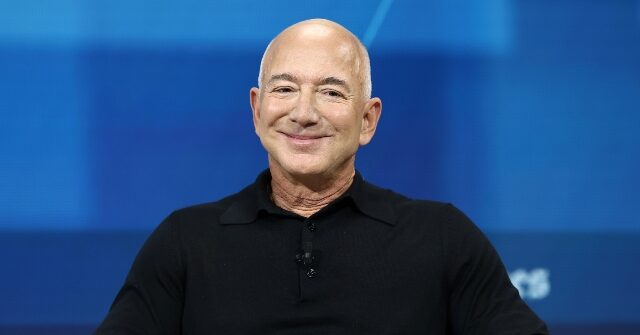In a recent discussion at the New York Times’ DealBook Summit, Amazon founder Jeff Bezos expressed his optimism regarding President-elect Donald Trump’s upcoming second term. Bezos remarked on Trump’s apparent focus on reducing federal regulations, a stance that he fully supports. He noted that Trump seems more composed now than he did during his first presidential campaign and that he is eager to assist the president in implementing regulatory reductions. According to Bezos, America suffers from an excess of regulation, and he wishes to collaborate with Trump to alleviate this burden.
Bezos addressed concerns surrounding Trump’s contentious relationship with the media, particularly his past aggressive remarks about journalists. He expressed hope that he could influence Trump’s perception, emphasizing that the press is not the enemy. This perspective comes in light of Bezos’ dual role as the owner of the Washington Post, which has had a tumultuous relationship with Trump throughout his presidency. Bezos mentioned that he believes Trump has matured over the past eight years and is more capable of engaging with the press constructively.
The discussion turned to the Washington Post’s recent decision not to endorse any presidential candidates in the 2024 election, marking a significant departure from its longstanding tradition. This decision, which sparked outrage among some progressive groups, was defended by Bezos as a means of enhancing credibility and trust in the newspaper. He acknowledged that many Americans question the accuracy and reliability of both the Post and its competitors. He reaffirmed the publication’s commitment to covering all presidents thoroughly, suggesting that the non-endorsement was a strategic choice designed to bolster reader confidence in the media.
Additionally, Bezos touched upon his ventures in space exploration through his company, Blue Origin, which competes with SpaceX, founded by Elon Musk. Musk has been a vocal supporter of Trump, and as he steps into a new role in the incoming administration, there are concerns about potential conflicts of interest. Nonetheless, Bezos remained optimistic that Musk would not exploit his relationship with Trump to disadvantage other companies. He expressed hope for productive collaboration in the regulatory space and faith in the capabilities of Musk and his team as they tackle government efficiency.
Highlighting his optimistic outlook, Bezos stated his belief that Trump genuinely aims to advance a regulatory agenda. He struck a hopeful tone, urging others not to adopt cynicism. Bezos indicated that if Trump’s intentions are genuine and aligned with the public’s interest, the results could be substantial. He acknowledged the potential for naïveté in his optimism but underscored the benefit of approaching the future with a positive mindset rather than skepticism.
In conclusion, Bezos’ reflections reveal both his commitment to promoting regulatory reform and his hope for a more collaborative relationship between the government and media. His willingness to assist Trump signals a strategic alignment of interests, particularly in reducing what he perceives as excessive regulations. As he navigates his roles as a business leader and media owner, Bezos aims to maintain a balance between supporting the administration’s goals and upholding the journalistic integrity of the Washington Post, even amid political controversies.

